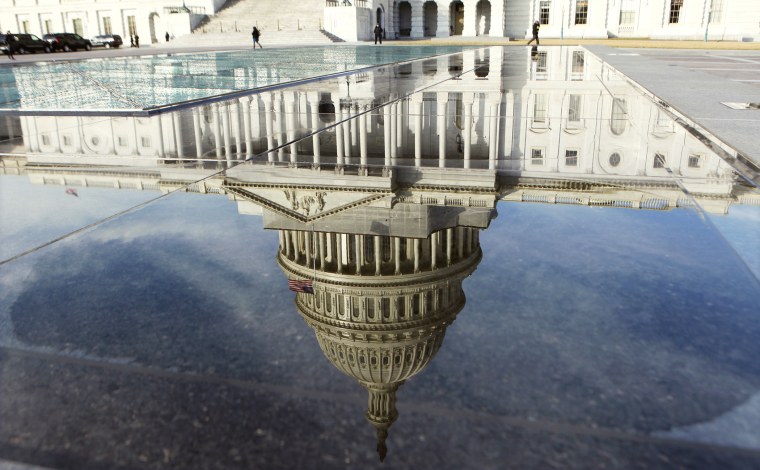The House Ways and Means Committee voted yesterday to make six tax breaks permanent, at a cost of $310 billion over the next 10 years. Where did Republicans find the money to pay for all of these tax cuts? They didn't bother to try -- the tax breaks would be deficit financed.
Democrats found it curious that Republicans only seem to care about deficit reduction when it suits their partisan purposes, but Ways and Means Committee Chairman Dave Camp (R-Mich.) had a defense ready.
[Camp] responded that the tax breaks have been passed year after year without any offsets. "This bill has been extended, unpaid for, probably 30 times," Camp said of a research tax credit. "I think it's important we extend this ... supporting permanency, not a temporary extension." Team Camp also points to another argument: They believe the jobs that come from tax breaks are worth adding some red ink to the deficit. "These are things that people feel are extremely worth adding to the economy," said Camp spokeswoman Sarah Swinehart.
As talking points go, that's actually pretty interesting. Because if Camp and his Republicans are sincere, and agree that it's important to embrace policies that produce jobs whether it increases the deficit or not, it would represent a fascinating breakthrough.
For example, Congress could invest in infrastructure, create a lot of jobs, lower the unemployment rate, and make it easier to move people and products around the country. To borrow a phrase, "these are things that people feel are extremely worth adding to the economy," too.
Congress can also extend federal jobless benefits, which according to independent CBO estimates, would be worth 200,000 jobs just this year. House Speaker John Boehner (R-Ohio) rejected the idea again yesterday, but in terms of bang for the buck, if GOP policymakers are now willing to argue that jobs are worth a little red ink, great.
Imagine how easy policymaking could become if lawmakers actually prioritized job creation. Forget the arguments about moving money around and struggling to find offsets -- so long as members could show that "these are things that people feel are extremely worth adding to the economy," then Congress could invest in policies that create a real, robust economic recovery.
Alas, the fantasy didn't last.
The committee chairman's spokesperson soon added, "[Chairman Camp] has the position that extensions of current policy and tax cuts don't have to be paid for. Pay-fors are for spending. New spending. That's his position."
Ah, I see. If Republicans want to add $310 billion to the deficit over the next 10 years for tax cuts, they don't have to pay for it because it might create some jobs. If Democrats want to add $310 billion to the deficit over the next 10 years for public investment in areas like infrastructure, they do have to pay for it, regardless of whether it would create jobs or not.
To be sure, this isn't new -- Republicans have been playing a ridiculous game by these rules for several years -- but it's still a timely reminder that to assume GOP officials have the high ground on fiscal responsibility is to ignore reality.
And to think those same GOP officials see job creation as their top priority is simply foolish.
